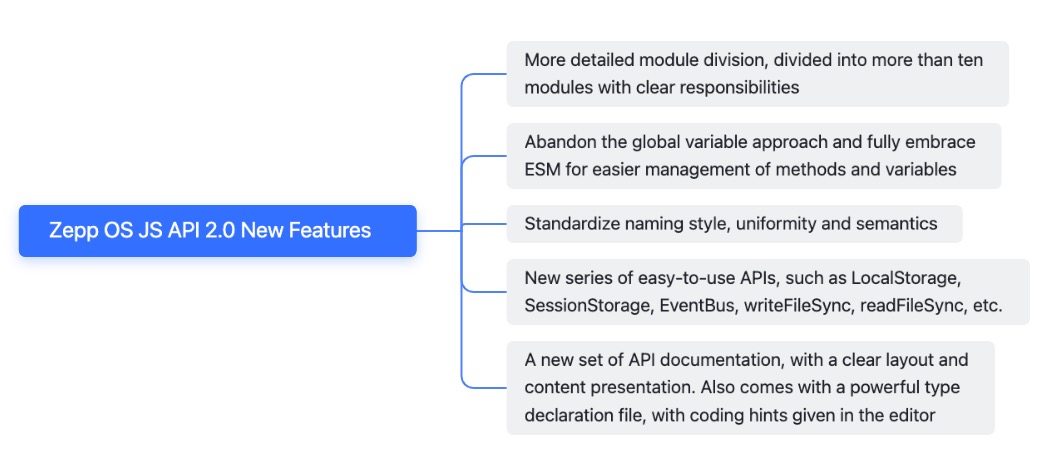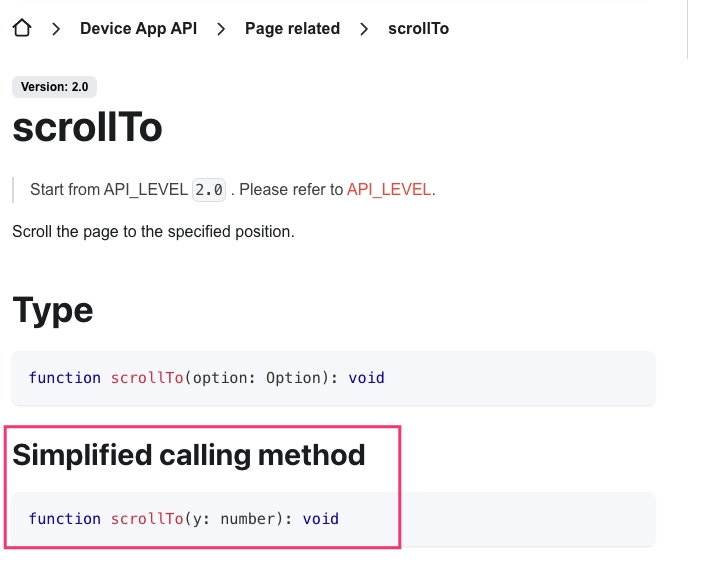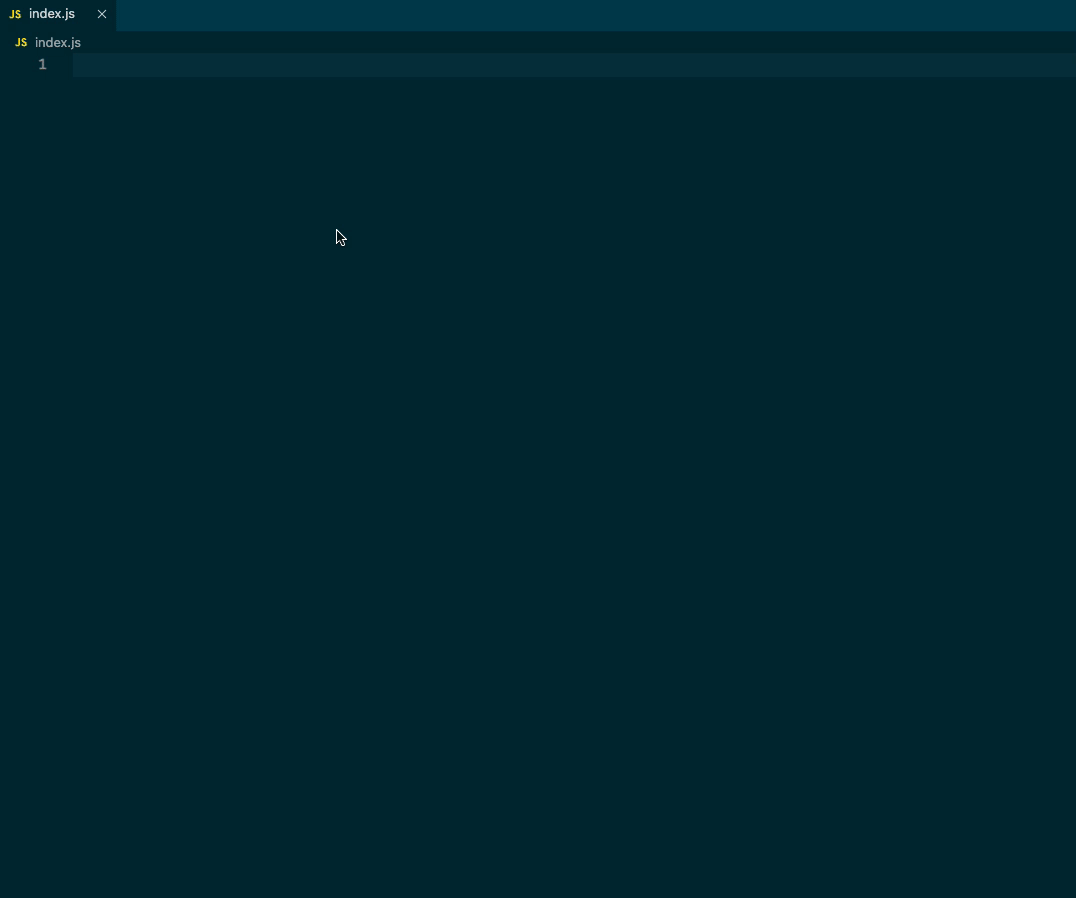2.0 API Introduction
Introduction
In the year that Zepp OS 1.0 Mini Program API has been serving developers around the world, we've taken a lot of suggestions from the community and compiled a list of the main problems with the 1.0 API.
To solve these problems and create a better development experience, the Zepp OS team refactored the Mini Program API and launched the new version 2.0.

Mini Program developed using the Zepp OS 2.0 API will not run on devices with Zepp OS version 1.0.
To develop a Mini Program for Zepp OS version 1.0 devices, please switch to v1.0 by clicking the version switch button in the upper right corner of the document.
- To check the Zepp OS version on your device, please refer to List of Devices with Zepp OS
- Please refer to API_LEVEL (Compatibility) for more information about compatibility
Get Started Quickly
Module division
The Zepp OS 2.0 API provides a more granular view of the system's open capabilities, breaking down the API into more than a dozen modules.
- UI
- Frame Interface
- Sensor
- Mini Program related
- Page related
- Router
- Interaction
- System Settings
- Display
- Device
- User
- File System
- Storage
- I18n
- Utils
- BLE
Developers can quickly find the APIs they need in the relevant modules as needed.
Introduction via ESM
We design the API in line with the ECMAScript standard, except for the Frame Interface module, all use the ECMAScript modules way to introduce.
Take push for example
import { push } from '@zos/router'
push({
url: 'page/index',
params: 'type=1'
})
Unified naming rules and more flexible calling methods
Zepp OS 2.0 API naming is consistent to the greatest extent possible, follows camel naming rules, and has good semantics.
The parameter passing has also been standardized, with most methods accepting an object of type object as a parameter.
Take scrollTo for example.
import { scrollTo } from '@zos/page'
scrollTo({
y: 200
})
Some APIs support simplified calls, which are marked in the API documentation under the type heading, scrollTo supports the following simplified call.

Call based on the type signature of the simplified call method.
import { scrollTo } from '@zos/page'
scrollTo(200)
New series of easy-to-use APIs
Zepp OS 1.0 Mini Programs implement some technical scenarios that are more cumbersome, such as file reading and writing, and often require a larger amount of code.
Compare the two pieces of code.
const fileName = 'TEST.txt'
const [fsStat, err] = hmFS.stat(fileName)
if (err === 0) {
const fileContentUnit = new Uint8Array(fsStat.size)
const file = hmFS.open(fileName, hmFS.O_RDWR)
hmFS.seek(file, 0, hmFS.SEEK_SET)
hmFS.read(file, fileContentUnit.buffer, 0, fileContentUnit.length)
hmFS.close(file)
const content = JSON.parse(String.fromCharCode.apply(null, fileContentUnit))
}
const fileName = 'TEST.txt'
const result = readFileSync({
path: fileName,
options: {
encoding: 'utf8'
}
})
if (result) {
const content = JSON.parse(result)
}
2.0 The readFileSync API is significantly less code intensive, more readable and maintainable, and can be implemented with LocalStorage if the purpose is to implement a persistent key-value pair storage.
import { localStorage } from '@zos/storage'
localStorage.setItem('test', 'test value')
const val = localStorage.getItem('test')
const defaultValue = localStorage.getItem('none_key', 'defaultValue')
In addition to file reading and writing scenarios, APIs such as EventBus, a tool class for managing event publishing subscriptions, and a more powerful logging tool log are provided.
New documentation and type declaration files
The new 2.0 API is accompanied by a new API documentation with simple layout, clear types, complete code examples and diagrams, and a significantly improved documentation experience.
We also provide a very complete type declaration file, which is distributed as an npm package, with very friendly and complete hints in the editor.
npm i @zeppos/device-types
or
yarn add @zeppos/device-types

Migration from 1.0
In Zepp OS 2.0, we introduced the concept of API_LEVEL, a complete JS API compatibility scheme, refer to API_LEVEL #Compatibility Assurance.
Please refer to Upgrade from version 1.0 for detailed migration steps.